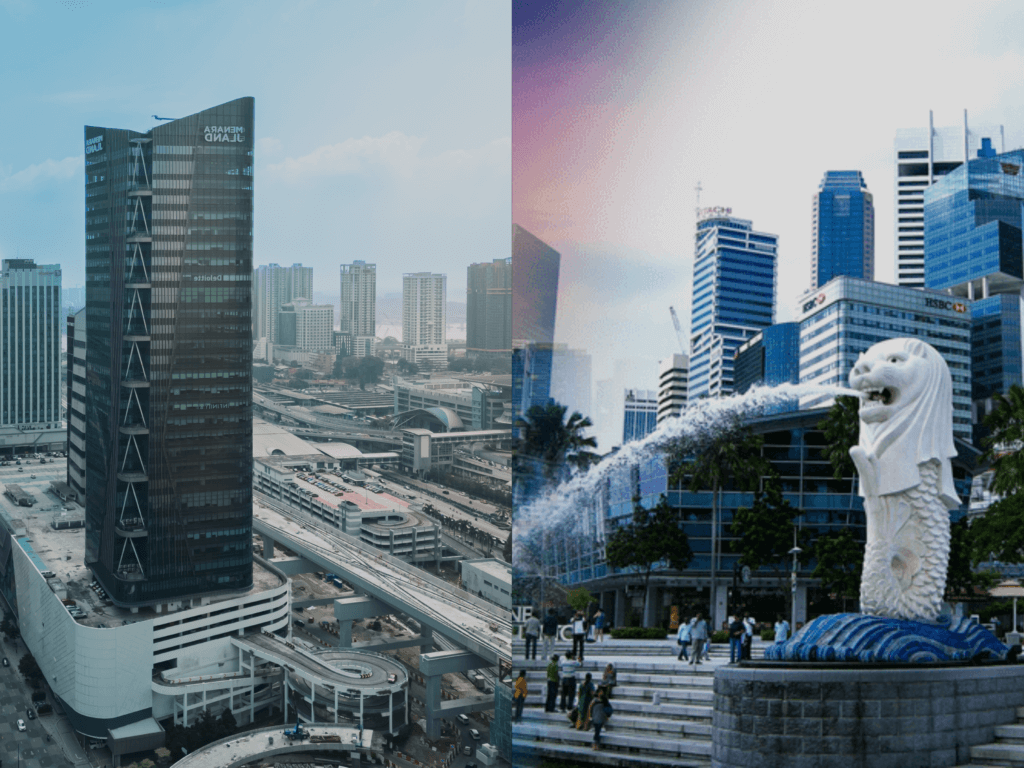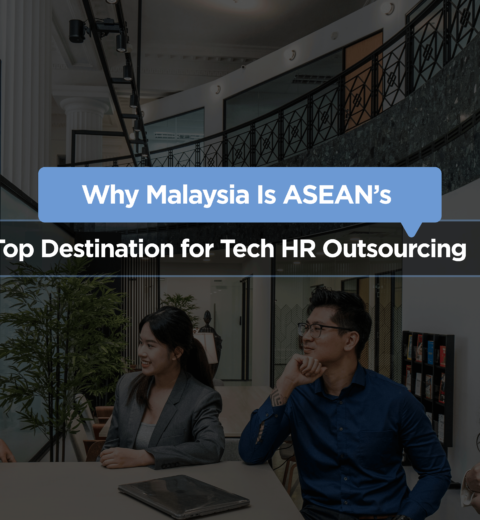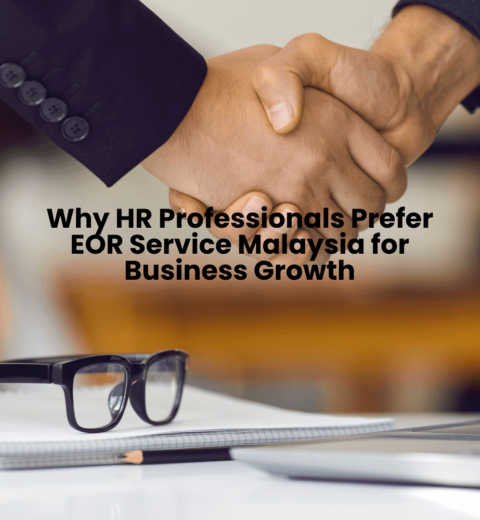
The Johor-Singapore Special Economic Zone (JS-SEZ) marks a major milestone in bilateral economic collaboration between Malaysia and Singapore.
Announced on January 6, 2025, this initiative aims to create a dynamic and integrated economic hub that strengthens trade, investment, and workforce mobility between the two countries.
Designed to foster greater economic integration, the JS-SEZ provides a strategic advantage for businesses seeking to scale, expand their market reach, and optimise operational efficiencies.
For Malaysian enterprises — including SMEs, startups, and established corporations — the JS-SEZ offers a wealth of opportunities.
Beyond the headlines and policy announcements, the real impact lies in the tangible benefits it presents for businesses looking to capitalise on a more interconnected regional economy. From tax incentives and infrastructure investments to streamlined customs procedures and enhanced digital trade facilitation, the JS-SEZ creates a more conducive business environment.
This article explores how Malaysian businesses can benefit from this special economic zone and highlights the role of ecosystem enablers like INFINITY8 in helping companies navigate and capitalise on these new opportunities.
Understanding the Johor-Singapore Special Economic Zone (JS-SEZ)

The JS-SEZ is a designated economic corridor in Johor designed to attract investments, facilitate trade, and promote industrial growth by integrating business ecosystems across the Malaysia-Singapore border.
Its primary objectives include boosting economic cooperation, enhancing cross-border mobility for businesses and workers, and fostering innovation-driven industries.
Key features of the JS-SEZ include:
- Streamlined Customs & Trade Facilitation – Faster and more efficient cross-border movement of goods and services, reducing bottlenecks in supply chains.
- Tax Incentives – Preferential corporate tax rates and financial incentives to attract investment from both local and international businesses.
- Infrastructure Development – Large-scale investments in transportation networks, industrial zones, and digital connectivity to support economic activities.
- Cross-Border Workforce Mobility – Easier movement of skilled professionals between Malaysia and Singapore, addressing labour market gaps.
- Digital Trade Facilitation – Policies and frameworks that enable seamless digital transactions, e-commerce expansion, and fintech collaboration.
JS-SEZ Momentum: Investments, Job Creation & Strategic Sector Focus

The Johor-Singapore Special Economic Zone (JS-SEZ) is a collaborative initiative between Malaysia and Singapore, aiming to bolster economic integration and attract substantial investments. According to Malaysia’s Minister of Economic Affairs, Rafizi Ramli, the JS-SEZ targets the initiation of 50 high-value projects and the creation of 20,000 skilled jobs within its first five years. The zone focuses on sectors such as manufacturing, logistics, tourism, clean energy, and the digital economy, offering competitive tax incentives and streamlined regulations to attract investors.
In the first quarter of 2025, Johor attracted RM27.4 billion in new investments, with nearly 90% of this amount directed to the JS-SEZ, highlighting its appeal to investors. Minister of Investment, Trade & Industry, Tengku Datuk Seri Zafrul Abdul Aziz, said the JS-SEZ, therefore, has to focus on attracting the right kind of investment that could diversify the supply chain and, in turn, help build the nation’s supply chain resiliency and security.
JS-SEZ Incentives at a Glance: Tax Benefits, Allowances & Exemptions

1. Location Requirements
Eligible businesses must be situated within designated areas of the JS-SEZ:
- Flagship Zones A–G: These zones encompass key economic areas such as Johor Bahru City Centre, Iskandar Puteri, and Pasir Gudang, each focusing on sectors like manufacturing, logistics, digital economy, and tourism.
- Special Zones:
- Forest City Special Financial Zone (SFZ): Tailored for financial services and related activities.
- Pengerang Integrated Petroleum Complex (PIPC): Dedicated to the energy and petrochemical industries.
- Forest City Special Financial Zone (SFZ): Tailored for financial services and related activities.
2. Sector Alignment
Businesses should operate within sectors prioritised by the JS-SEZ, including:
- Advanced manufacturing
- Logistics and supply chain management
- Digital economy and ICT
- Healthcare and medical devices
- Clean and renewable energy
- Tourism and integrated resorts
- Aerospace and aviation services
- Financial services (specific to SFZ)
3. Approved Activities
Eligible activities encompass:
- New investments in the aforementioned sectors.
- Diversification into approved activities/products within these sectors.
- Engagement in high-value projects that contribute to economic growth and job creation.
Additionally, companies are required to have a minimum paid-up capital of RM2.5 million at the time of application submission to the Malaysian Investment Development Authority (MIDA).
In summary, the JS-SEZ represents a significant opportunity for Malaysian businesses to expand their operations, benefit from tax incentives, and tap into new markets through enhanced cross-border collaboration. For detailed information on qualifying criteria, including renovation allowances and duty exemptions, businesses can refer to the official MIDA snapshot.
Strategic Opportunities for Malaysian Businesses

The JS-SEZ opens up numerous strategic opportunities for Malaysian businesses, particularly those looking to scale their operations and tap into new markets, such as:
1. Access to Singapore’s Premium Markets at Lower Operating Costs
Singapore is known for its high-cost business environment, making expansion challenging for many Malaysian businesses. By setting up operations in Johor, companies can maintain proximity to Singapore’s affluent consumer base while benefiting from significantly lower overhead costs in Malaysia. This is particularly advantageous for companies in the manufacturing, logistics, and professional services sectors.
2. Joint Ventures and Cross-Border Partnerships
The SEZ facilitates stronger business collaborations between Malaysian and Singaporean enterprises. Companies looking to enter the Singaporean market can leverage partnerships to gain local insights, access networks, and mitigate risks associated with market entry. Sectors such as technology, healthcare, and e-commerce stand to benefit from these cross-border synergies.
3. Export-Oriented Companies and Service Providers
For Malaysian businesses focused on exports, the JS-SEZ offers enhanced logistical efficiency and incentives to support international trade. The presence of improved infrastructure, dedicated trade zones, and streamlined export procedures can significantly boost competitiveness in global markets.
Infrastructure and Talent Development Boost

A critical component of the JS-SEZ is the government’s investment in infrastructure and workforce development. These efforts aim to create an ecosystem where businesses can thrive without facing major operational constraints.
- Improved Transport and Logistics Networks – The development of high-speed rail links, highways, and port expansions will enhance supply chain efficiency.
- Increased Digital Connectivity – Investments in broadband infrastructure and smart city initiatives will drive digital transformation and enable businesses to scale operations seamlessly.
- Skilled Workforce Mobility – With the SEZ expected to create over 20,000 skilled jobs, companies will have access to a growing pool of talent while benefiting from policies that ease employment regulations for cross-border professionals.
Ecosystem enablers play a crucial role in helping businesses establish themselves quickly. For example, INFINITY8 offers flexible workspaces, business support services, and strategic office locations, bridging the gap for companies seeking to expand within the SEZ without incurring excessive capital expenditures.
SMEs and Startups: A Level Playing Field

For SMEs and startups, the JS-SEZ presents an unprecedented opportunity to compete on a regional scale. Historically, smaller enterprises have struggled with high barriers to entry in international trade due to capital constraints and operational complexities. The SEZ addresses these challenges by offering:
- Lower Entry Costs – Affordable coworking spaces and flexible office solutions, such as those provided by INFINITY8 with their Kongsi Work series, enable startups to operate without large upfront investments.
- Access to High-Growth Markets – Being part of the SEZ ecosystem allows smaller businesses to engage with larger regional markets and multinational corporations.
- Networking and Business Support Services – Business incubators and accelerators within the SEZ provide mentorship, funding access, and strategic guidance.
INFINITY8, for example, offers tailor-made solutions such as:
- Private Offices – Fully furnished spaces designed for businesses of all sizes.
- Hot Desks & Dedicated Desks – Flexible workspace solutions that cater to entrepreneurs and remote teams.
- Virtual Offices – A cost-effective solution for businesses requiring a professional presence without the need for physical space.
- Meeting Rooms & Event Spaces – State-of-the-art facilities for client meetings, workshops, and networking events.
Challenges to Anticipate

While the JS-SEZ presents immense opportunities, businesses must be prepared to navigate certain challenges:
- Regulatory Compliance & Cross-Border Standardisation – Companies must ensure they adhere to both Malaysian and Singaporean regulatory frameworks, particularly in trade, taxation, and employment laws.
- Talent Migration & Competition – The SEZ’s attractive employment opportunities may lead to increased competition for skilled workers. Businesses should implement strategies for talent retention and skills development.
- Digital Readiness – To fully capitalise on the SEZ’s digital trade facilitation policies, businesses must invest in technology and cybersecurity measures.
Conclusion
The Johor-Singapore Special Economic Zone is poised to become a game-changer for businesses looking to expand their reach, reduce costs, and integrate into a high-growth regional economy. By understanding its benefits and preparing early, Malaysian enterprises can position themselves for long-term success.
Ecosystem enablers like INFINITY8 play a pivotal role in this transition, offering the necessary infrastructure, business services, and strategic support to help companies navigate the complexities of cross-border expansion. As businesses gear up to leverage the JS-SEZ, having the right partners and resources in place will be key to maximising growth and minimising risks in this new economic landscape.




